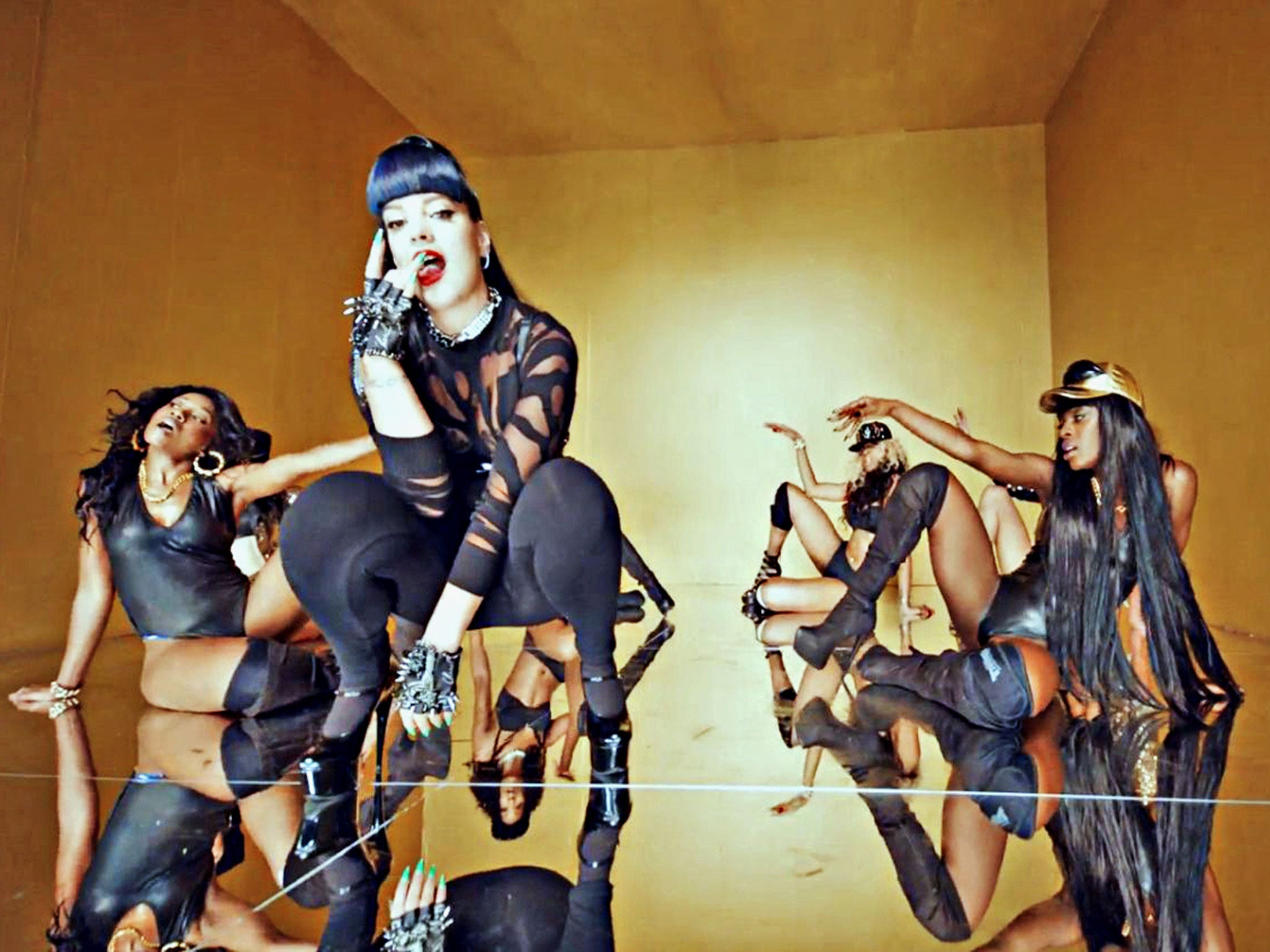Lily Allen is right to aim at misogyny in the music industry - but her video doesn't quite hit the target
Let’s not copy men’s moves for a cheap laugh. Parody is no longer enough

Your support helps us to tell the story
From reproductive rights to climate change to Big Tech, The Independent is on the ground when the story is developing. Whether it's investigating the financials of Elon Musk's pro-Trump PAC or producing our latest documentary, 'The A Word', which shines a light on the American women fighting for reproductive rights, we know how important it is to parse out the facts from the messaging.
At such a critical moment in US history, we need reporters on the ground. Your donation allows us to keep sending journalists to speak to both sides of the story.
The Independent is trusted by Americans across the entire political spectrum. And unlike many other quality news outlets, we choose not to lock Americans out of our reporting and analysis with paywalls. We believe quality journalism should be available to everyone, paid for by those who can afford it.
Your support makes all the difference.I never thought I’d see the words “Lily Allen Has A Baggy Pussy” spelled out in balloons on a mainstream music video. It’s shocking. It’s eye-catching. And, yes, it is making a point: women are too often treated like sex objects in the music industry, present only to gratify the male gaze and fulfil their sexual desires. In Allen’s own words: “It’s hard out here for a bitch.”
You see, I understand exactly what Allen is trying to do. Her comeback single, ‘“Hard Out Here,” is a 4 minute 23 second parody of the music industry. For some, it’s a “feminist tour-de-force.” As a nod to the increasingly sexualised depiction of women in mainstream pop videos, Allen is encouraged to fellate a banana and slap her background singer’s “twerking” derriere – parodying Miley Cyrus and simultaneously presenting the move as offensive and cheap.
Like any good satire, the aforementioned balloons also parody Robin Thicke’s chart-topping single “Blurred-Lines”, which controversially described one woman as an “animal” who “wants it.”
But, parody aside, I can’t help wondering what exactly Allen’s video achieves? At the start of the week I wrote about Rewind&Reframe, a new online campaign which is calling on the music industry and David Cameron to address the issue of sexism and racism in music videos, as well as introduce age rankings.
The coalition of women’s groups behind it was very clear. Their campaign isn’t another paternalistic judgement of women who choose to take their clothes off, an organiser insisted. It is about enabling women to share their experiences and highlight how things could be done differently.
This is where Allen’s attempt becomes unstuck. She ridicules the objectification of women by dancing around provocatively. She satirises Cyrus’s racially-charged “twerking” by slapping a black dancer’s bottom. While her lyrics remind women that “somebody objectifies you,” her backing dancers shake their crotches and twist their half-naked bodies around cars.
“Something strange happened between the concept of Lily Allen's new song and its execution,” tweeted the End Violence Against Women coalition, who are involved in the new campaign. Their timeline today consists of angry retweets. “So Lily Allen did funny spoof. But has no one else notice that she is fully clothed while black women do the semi-naked twerking?” pointed out one. Forget the satire, said another, “all I see is a group of black women being exploited AGAIN.”
Don’t misunderstand me, I’m not trying to knock Allen’s intentions. I just think she got it wrong. She has responded to critics, saying the reason she doesn’t appear in a bikini (while her dancer’s do) is a result of her own insecurity, not an attempt to distance herself from them. She said that her video is “meant to be a lighthearted satirical video that deals with objectification of women within modern pop culture.” She added: “It has nothing to do with race, at all.”
But you can’t eliminate race from the picture, and nor should you. We have heard that women, and particularly black and minority ethnic (BME) women in the UK, are frustrated with their over-sexualised images appearing again and again in music videos. So, shouldn’t we offer them more than just another video showcasing a black woman pouring champagne over her chest?
Allen has ignited a debate and that’s great. But women, we can do better. Let’s not copy men’s moves for a cheap laugh. We know more than anyone that parody is no longer enough. We know that the best campaigners must offer something new. I’m looking forward to the first YouTube re-make of “Hard Out Here”. Hopefully, it won’t require an age-ranking.
Join our commenting forum
Join thought-provoking conversations, follow other Independent readers and see their replies
Comments